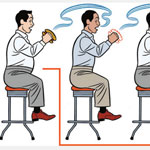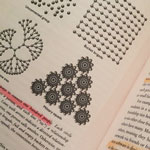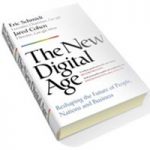
“The structure of the social licking network among cows is one of the best patterns for understanding and predicting the network structure of interaction among U.S. senators”.
Considering above fact and other similar researches reported by Nicholas Christakis in his book titled connected, would not be surprising when he tells us that the obesity or mood is a contagion property in human networks.
Christakis, a professor of social and natural science at Yale, was named by Time magazine as one of the 100 most influential people of the world in 2009.
If Christakis and James Fowler had to choose another title for their book, most probably they would choose Contagious instead of Connected. The whole book concentrates on the contagious effect of the human attributes, moods and behaviors in the networks.
According to their reports, a variety of individuals’ attributes like obesity, smoking, and happiness are not individualistic behaviors as we thought before and are seriously correlated – and even caused – by our connections with other people.
Contagious effect of the mood and behavior is not something new. However, social networks have provided a better means for transmitting these attributes compared to traditional traditional face-to-face and personal communications. Christakis calls this feature as the long-distance contagious property of the social networks.
At the early years of the web, the Six degrees of separation was the famous story everywhere. Reading the connected book, you would be convinced that the social networks have a more amazing story now: The three degrees of influence:
Our influence gradually dissipates and eases to have noticeable effect on people beyond the special frontier that lies at three degrees of separation. We are generally influenced by friends within 3 degree but general not by those beyond.
The book has an evolutionary point of view in describing the emotional contagion: I am happier when you are happy, and I feel sad because you are so. In the process of evolution, we have learned to mimic others’ emotions outwardly, and this outward mimicking have led us to adopt the others’ internal states.
Although this process helped us in the development of emotional empathy, the same capability has become a threat to us in today’s complicated network-rich hyperconnected world.
The book’s message is clear and important: We no longer dominate the territory of our feelings and emotions. Not only my direct friends in the network have a non-neglectable contribution in my mood, but also my friend’s friends have a great influence on my feeling and emotions.
In the age of hyperconnectedness, feeling lonely can be totally different from being alone, as the feeling of loneliness can be induced unconsciously by the people I am connected with. Therefore, the most control we have, is choosing the people we are connected, and this is the decision most of us have left to the random suggestions of the social applications!

Related Link: A PDF file from the book excerpts provided by the authors






